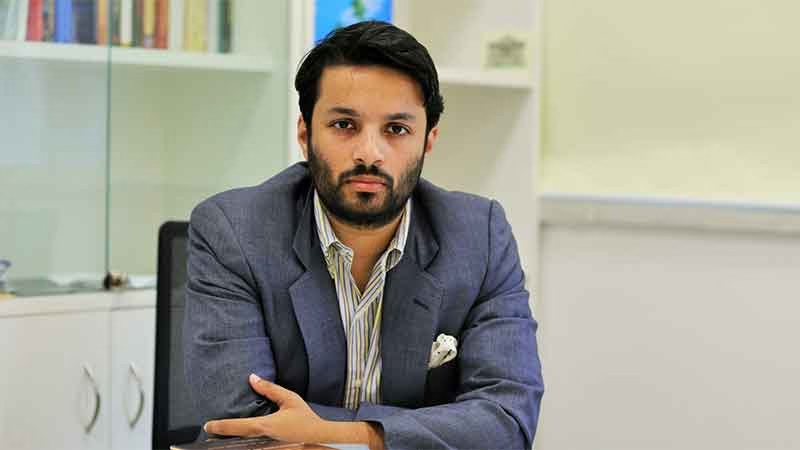
Netflix’s latest sensation ‘Adolescence’ may appear to be a gripping murder mystery on the surface, but beneath it lies a deep psychological exploration into the minds of today’s teenage boys. It brings into focus a disturbing yet real-world concept—the ‘incel’ mindset, or involuntary celibacy, and how it is shaping attitudes towards women in India. In this article, we will try and understand the modern Incel and what is cooking inside today’s teenage boys particularly in the age of adolescene, let’s begin
Understanding Incel, its reason and Why Should We Be Concerned?
The term incel, short for “involuntarily celibate,” refers to young men who believe they are unable to attract women. Often, this belief is laced with frustration, entitlement, and even hostility. Adolescence has brought this term into mainstream conversation in India, exposing a toxic mindset that’s alarmingly prevalent and deeply rooted in patriarchal values. Now, when does it start, looking into puberty and emotional confusion?
Psychiatrists note that such mindsets often begin to form as boys hit puberty—typically between the ages of 11 and 12. This stage, dubbed the “hurricane age,” is marked by physical changes, emotional confusion, and growing interest in the opposite sex. Boys, more than girls, tend to develop a strong sense of physical attraction, and without emotional maturity, they struggle to handle rejection or indifference.
Real-World Cases from Psychiatric Wards
Dr. Nishant Goel, head of the Centre for Child and Adolescent Psychiatry at Ranchi’s Central Institute of Psychiatry, shares a telling example. In his 24-bed unit for children aged 8 to 18, instances of budding attraction and jealousy are common.
“When a girl doesn’t reciprocate a boy’s attention, it often results in jealousy and frustration,” he explains. “This can turn into resentment and a sense of being wronged—key markers of the incel mindset.” Talking about its role of rejection and jealousy, one major trigger is rejection. About 40–50% of boys who face rejection from girls reportedly start developing such tendencies. This behaviour is often aggravated by toxic masculinity and societal conditioning that views women as trophies or possessions.
Interestingly, the surge in toxic behaviour is seen more during the post-Covid times. The resulting isolation during the global pandemic has only worsened matters. With children confined to their homes and exposed more than ever to online content, social media became a breeding ground for toxic beliefs. Rejected boys took to trolling and cyberbullying as coping mechanisms.
India and the Cultural Backdrop
As per Dr. Goel, India has the history of having such misogynistic tendencies among our generations. “Even before we used the term ‘incel’, this attitude existed. Indian society’s male dominance and glorification of patriarchy give rise to misogyny wrapped in the name of sanskar,” he says.
Many Indian men expect women to both work outside and fulfill traditional roles at home. Children absorb these expectations from their immediate environment—fathers, uncles, teachers, and even neighbours.
Now, the big question – are crimes against women linked to Incel mindset? Well, according to Dr. Goel, yes. “Most incels avoid social interaction and develop deep insecurities. Their sense of entitlement, when rejected, breeds frustration, which can turn into hostility towards women.”
He adds that violent acts like rape, acid attacks, and online abuse can be rooted in this mindset. Unlike the West, where incel forums may remain online communities, in India, this frustration often manifests as real-world aggression.
Social Media’s Dual Role
While social media has played a significant role in spreading incel culture—through influencers like Andrew Tate—it can also be a tool for good. “We need to create ‘safe chambers’ online, where boys can speak openly about their emotions and challenges,” Dr. Goel suggests.
These digital safe spaces can act like modern self-help groups, helping young boys process feelings in healthier ways and promoting concepts like consent, emotional literacy, and gender respect.
At the same time, we also feel the influence of movies and pornography at its peak. Media plays a powerful role in shaping young minds. Unfortunately, many adolescents in India receive their first “sex education” through pornography, which often objectifies women and reinforces misogyny. Films, too, can send harmful messages under the guise of romance or humour.
Can Girls be Incels too?
Another big question to answer, can girls be incels too? One might see the phenomenon being a male-dominated; girls can also feel socially rejected. However, the emotional outcomes tend to differ. Girls often internalize pain, leading to sadness or depression, while boys externalize it as aggression or violence.
Dr. Goel emphasizes that religion is often misused by those trying to justify their toxic beliefs. “Religion itself doesn’t differentiate between boys and girls. But people use it as a shield for their actions.”
Subscribe to Our Newsletter
Get the latest CounterCurrents updates delivered straight to your inbox.
Conclusion: Breaking the Cycle
The incel mindset isn’t just a Western phenomenon or an internet trend—it’s deeply embedded in India’s social fabric too. Shows like Adolescence spark much-needed conversations, but the onus lies with parents, educators, and mental health professionals to guide young boys away from toxic masculinity.
To conclude, Dr. Goel’s final words resonate with urgency: “We encounter these situations daily. It’s not rare; it’s common. And unless we intervene early—with education, empathy, and safe spaces—the consequences will only grow more from bad to worse.”
Let us raise a generation of young men who are secure, emotionally aware, spiritually grounded, and respectful of all human beings—especially women. Because, it is not your gender, power, or appearance that matters, but the purity of your heart and the actions you choose.
Mohd Ziyauallah Khan is based in Nagpur and a freelance writer and editor. He is also an activist and social entrepreneur and loves to experiment with special and exclusive programs among young people under the banner – Young Transformers.















































